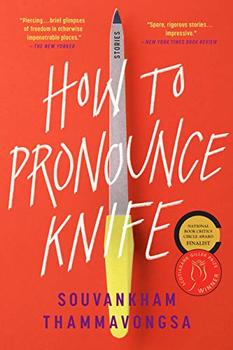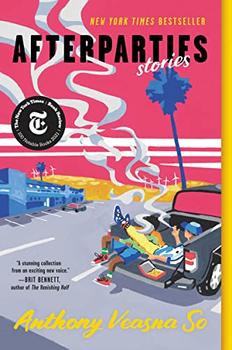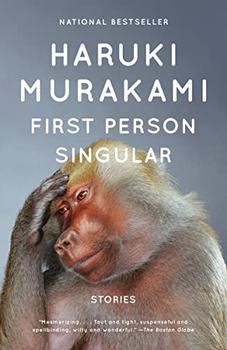Summary | Excerpt | Reading Guide | Reviews | Beyond the book | Read-Alikes | Genres & Themes | Author Bio

Spare, unsentimental, and distilled to riveting essentials, these "emotionally devastating" stories honor the surreal, funny, and often wrenching realities of trying to build a life far from home (Sheila Heti).
Winner of the 2020 Giller Prize.
In the title story of Souvankham Thammavongsa's debut collection, a young girl brings a book home from school and asks her father to help her pronounce a tricky word, a simple exchange with unforgettable consequences. Thammavongsa is a master at homing in on moments like this -- moments of exposure, dislocation, and messy feeling that push us right up against the limits of language.
The stories that make up How to Pronounce Knife focus on characters struggling to find their bearings in unfamiliar territory, or shuttling between idioms, cultures, and values. A failed boxer discovers what it truly means to be a champion when he starts painting nails at his sister's salon. A young woman tries to discern the invisible but immutable social hierarchies at a chicken processing plant. A mother coaches her daughter in the challenging art of worm harvesting.
In a taut, visceral prose style that establishes her as one of the most striking and assured voices of her generation, Thammavongsa interrogates what it means to make a living, to work, and to create meaning.
Throughout the 14 stories collected in How to Pronounce Knife, nearly all of which follow Lao immigrants and refugees building new lives in unnamed towns across Canada, not once do we encounter a character homesick with nostalgia. By limiting cultural particularities, Thammavongsa steers the reader closer to a general experience of alienation bound up with the immigrant experience. These stories never rely on twists or a-ha moments. They are deeply affecting, humorous and heartbreaking in equal measure...continued
Full Review
(680 words)
This review is available to non-members for a limited time. For full access,
become a member today.
(Reviewed by Dean Muscat).
 In the story "Chick-A-Chee!" from How to Pronounce Knife by Souvankham Thammavongsa, an immigrant father takes his children trick-or-treating on Halloween in the hope that they will integrate better into the local culture.
In the story "Chick-A-Chee!" from How to Pronounce Knife by Souvankham Thammavongsa, an immigrant father takes his children trick-or-treating on Halloween in the hope that they will integrate better into the local culture.
Around the world today, treat-or-treating is very much seen as an all-American activity. However, its origins can be traced back to the ancient Celtic holiday of Samhain (pronounced SOW'inn), which is still celebrated by modern pagans. During this end-of-summer festival, the ancient Celts believed that the barrier between the world of the gods and humankind was lifted and that deities played tricks on humans.
In the 8th century CE, Christians began to celebrate All Saints' Day, a day to honor saints and ...
This "beyond the book" feature is available to non-members for a limited time. Join today for full access.

If you liked How to Pronounce Knife, try these:

by Anthony Veasna So
Published 2022
A vibrant story collection about Cambodian-American life - immersive and comic, yet unsparing - that offers profound insight into the intimacy of queer and immigrant communities.

by Haruki Murakami
Published 2022
A mind-bending new collection of short stories from the internationally acclaimed, Haruki Murakami.